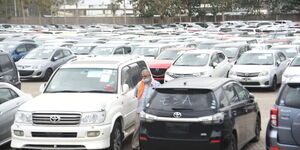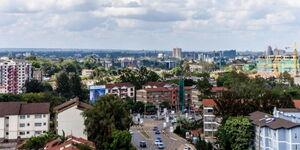A new report has revealed that funding shortfalls and programme cuts are exacerbating the already dire situation of the humanitarian system, further worsening conditions for refugees, most of whom are hosted in the northern parts of the country.
The NGO Refugee Group (NRG)'s mid-year survey, involving 10 partner organisations and 116 refugees, painted a bleak picture of life in camps amid the ongoing U.S. funding cuts and the rollout of Differentiated Assistance.
"The findings reveal a humanitarian system under strain, with declining standards across all core sectors and growing social tensions," the report revealed.
According to the NRG report, police escorts in Dadaab are now limited to three days, and some offices are operating with only five hours of electricity per day amid an active presence of Al-Shabaab.
"In Dadaab, where there is an active Al-Shabaab presence, police escorts are limited to three days a week, and some offices now operate with only five hours of electricity daily," part of the report read.
Funding Shortfall
According to the report, the funding shortfall fell in the region of around Ksh2.5 billion (USD20 million), and could be higher since some organisations failed to submit complete data.
Since the funding cuts, basic standards have deteriorated to alarming levels, with water consumption dropping below emergency levels. The report estimates that at the Dadaab refugee camp, only about 10 litres are received per day for the whole camp.
Schools are still overcrowded, teachers have been cut, and safety and security initiatives have been halted.
As far as security is concerned, police escorts are now limited to just three days a week. The thinning security threat increases the risk of locals getting recruited to extremist groups amid compounding pressures.
Worse still, the officers operate with only five hours of electricity daily, with the high cost of flights restricting staff movement between Nairobi and the camps.
"Refugees report declining confidence in their prospects, with many expressing uncertainties about their future and limited livelihood opportunities. These factors, together with reduced service standards, are compounding risks to social cohesion, security, and longer-term durable solutions," the report read.
Owing to the financial shortfall, the report highlights humanitarian organisations' plight, since they have been forced to intervene to absorb extra costs and responsibilities.
The report was released barely a week after the United Kingdom issued a travel advisory, warning its citizens against travelling to some parts of Kenya, especially the northern regions, due to terrorism, banditry and kidnappings.
In their alert, the UK had claimed there was a heightened risk of terrorism from groups based in Somalia.












